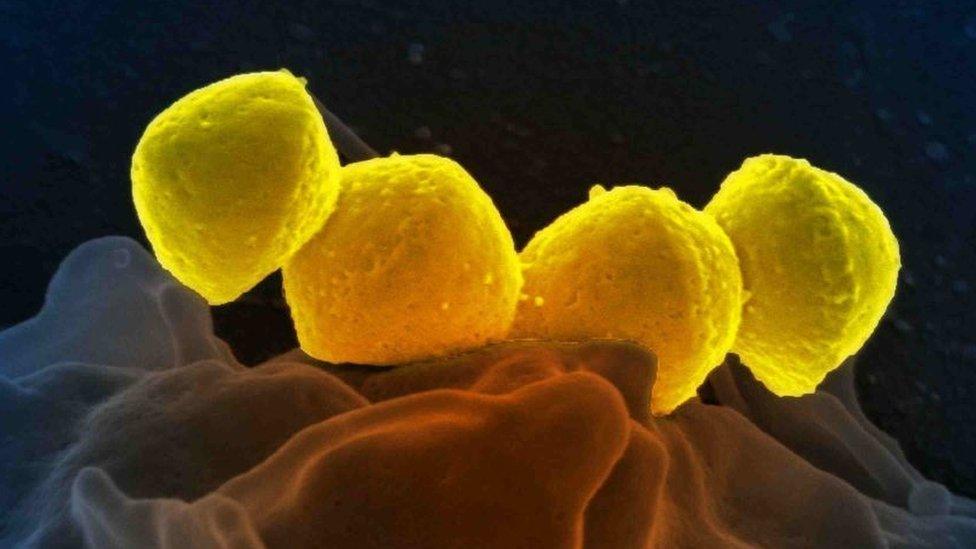Strep A: University of Bristol study to aid hopes of vaccine
- Published

Strep A bacteria as seen though a scanning electron micrograph
Scientists are researching group A strep in hope of aiding the development of a vaccine against the infection.
Led by the University of Bristol, the study will use a new technique called the tonsil organoid model.
Invasive Group A streptococcus (iGAS) can cause diseases such as meningitis, external.
The "pioneering" trial is funded by Spencer Dayman Meningitis Research. The charity was set up in 2002 in memory of Spencer who died of meningitis and sepsis at 14 months.
His father, Dr Steve Dayman MBE, from the charity, said it was a "starting point" towards a vaccine.
Dr Dayman added: "Back then [1982] there were no vaccines to protect against bacterial infections causing meningitis and sepsis, now we have five vaccines in the UK vaccine program to protect against various strains of disease."
Currently there is no vaccine available to protect against group A strep, external, which can also cause rheumatic fever and scarlet fever.
The research by scientists Dr Anu Goenka, Dr Alice Halliday and Dr Darryl Hill will involve growing cells from tonsils of patients who have had them removed during surgery.
Once collected, the team will then separate the cells and grow them in a laboratory alongside different parts of the strep A bacteria.
The immune response will then be measured to help them decide which parts of the bacteria could be included in a successful vaccine.
Dr Goenka said: "This project will offer unique insights into the nature of the adaptive immune response to iGAS.
"We are very grateful to Spencer Dayman Meningitis Research for their generous financial support to enable us to undertake this important project."

Follow BBC West on Facebook, external, X, external and Instagram, external. Send your story ideas to: bristol@bbc.co.uk , external
Related topics
- Published25 September 2023

- Published14 September 2023

- Published8 September 2023

- Published30 December 2022
